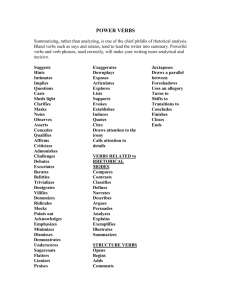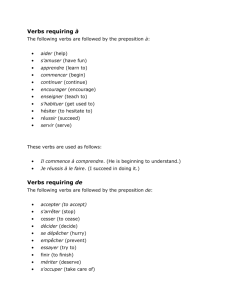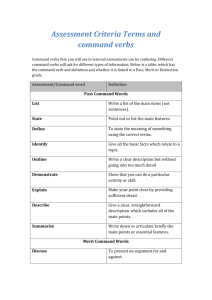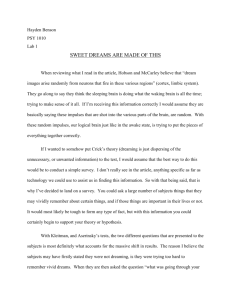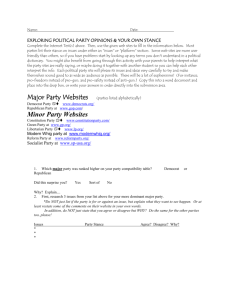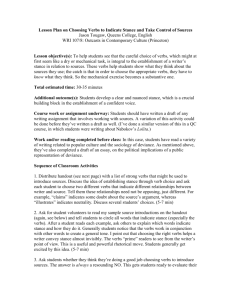Verbs commonly used to introduce sources:
advertisement
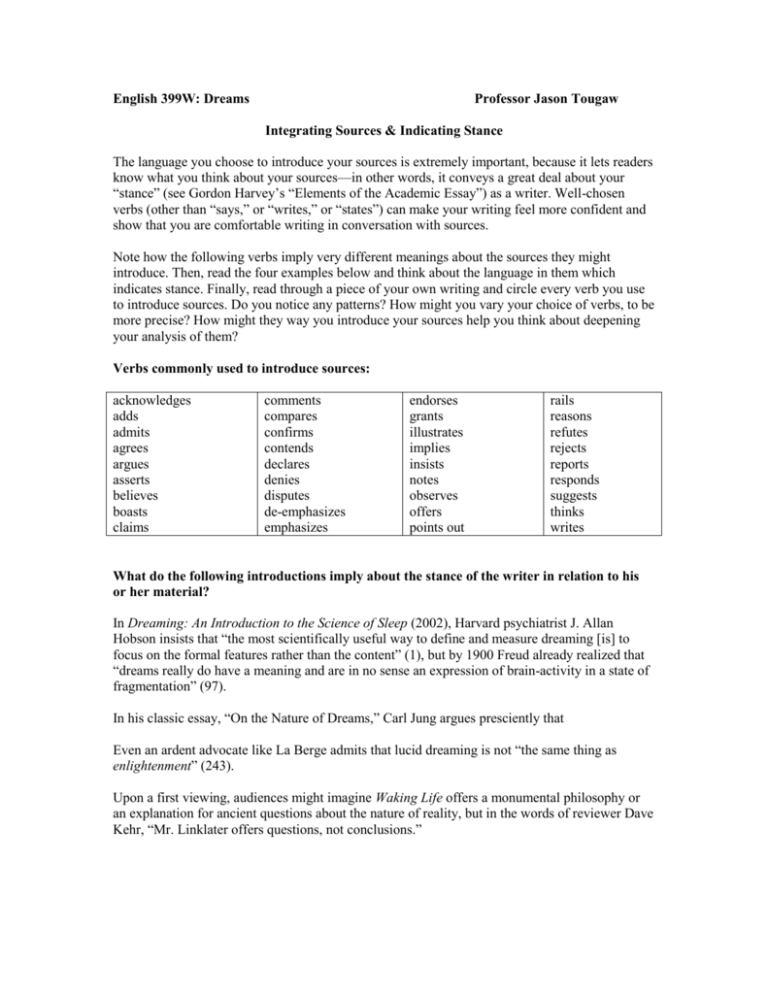
English 399W: Dreams Professor Jason Tougaw Integrating Sources & Indicating Stance The language you choose to introduce your sources is extremely important, because it lets readers know what you think about your sources—in other words, it conveys a great deal about your “stance” (see Gordon Harvey’s “Elements of the Academic Essay”) as a writer. Well-chosen verbs (other than “says,” or “writes,” or “states”) can make your writing feel more confident and show that you are comfortable writing in conversation with sources. Note how the following verbs imply very different meanings about the sources they might introduce. Then, read the four examples below and think about the language in them which indicates stance. Finally, read through a piece of your own writing and circle every verb you use to introduce sources. Do you notice any patterns? How might you vary your choice of verbs, to be more precise? How might they way you introduce your sources help you think about deepening your analysis of them? Verbs commonly used to introduce sources: acknowledges adds admits agrees argues asserts believes boasts claims comments compares confirms contends declares denies disputes de-emphasizes emphasizes endorses grants illustrates implies insists notes observes offers points out rails reasons refutes rejects reports responds suggests thinks writes What do the following introductions imply about the stance of the writer in relation to his or her material? In Dreaming: An Introduction to the Science of Sleep (2002), Harvard psychiatrist J. Allan Hobson insists that “the most scientifically useful way to define and measure dreaming [is] to focus on the formal features rather than the content” (1), but by 1900 Freud already realized that “dreams really do have a meaning and are in no sense an expression of brain-activity in a state of fragmentation” (97). In his classic essay, “On the Nature of Dreams,” Carl Jung argues presciently that Even an ardent advocate like La Berge admits that lucid dreaming is not “the same thing as enlightenment” (243). Upon a first viewing, audiences might imagine Waking Life offers a monumental philosophy or an explanation for ancient questions about the nature of reality, but in the words of reviewer Dave Kehr, “Mr. Linklater offers questions, not conclusions.”




